“I work with mice and I would rather die than work this job another year.” A viral thread on the social media platform X is exposing the confessions of regretful early-career scientists who are forced to perform experiments on mice and other animals—thoughts that are often kept secret.
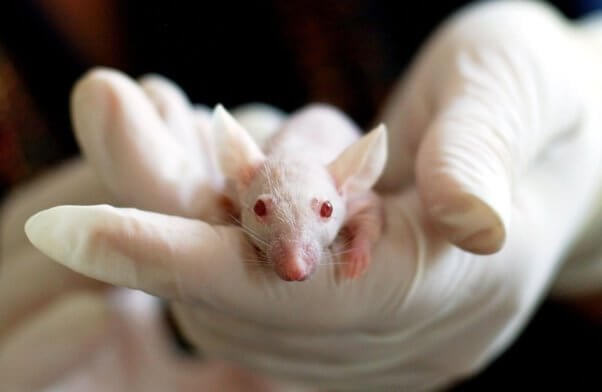
Read the Stories of Young Scientists Who Feel Remorse About Testing on Animals
Some PETA scientists are all too familiar with being coerced by their mentors into harming animals.
They later realized that conducting animal experiments was entirely unnecessary and morally wrong. See their stories in the short, riveting documentary Test Subjects from BAFTA-winning director Alex Lockwood.
Science programs may push out their best students by failing to move away from experiments on animals.
Being forced to hurt and kill animals simply to obtain a degree, publish a paper, or keep a job isn’t something intelligent, decent people can do. So they leave scientific fields. This creates a brain drain in these fields, as potentially promising students choose other areas of study rather than participating in cruel animal tests.
The students who ignore their conscience and submit to conducting these tests must attempt to desensitize themselves to the horrors they’re performing in laboratories. As evidenced by the personal confessions shared in the posts on this page, this isn’t always an easy thing to do.
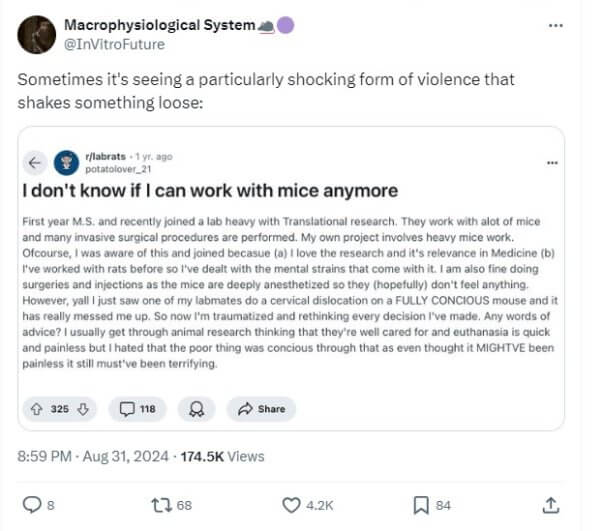
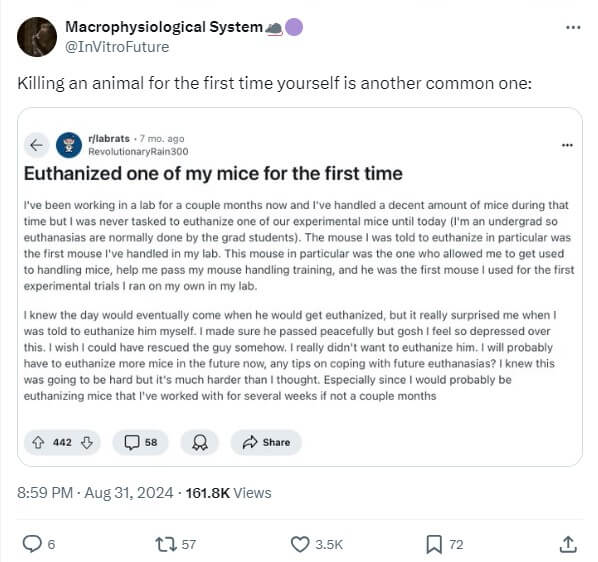
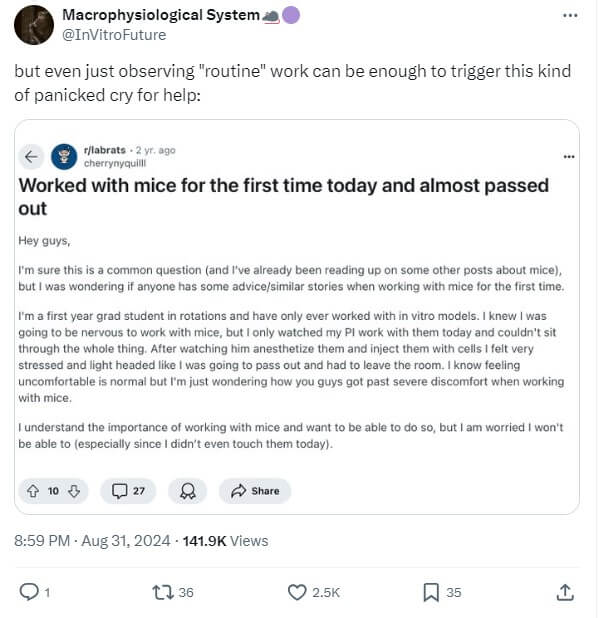
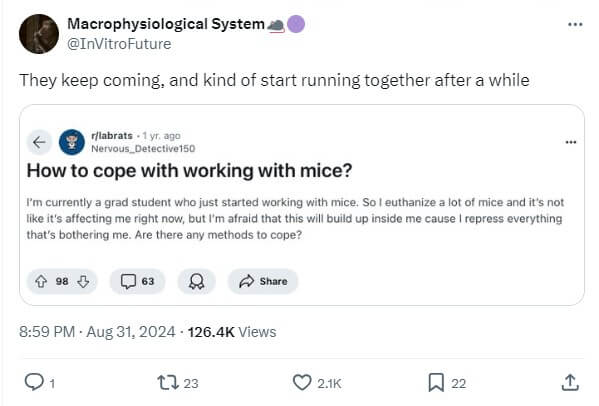
Scientific programs heavy in animal use and lacking in non-animal research opportunities are setting up their trainees for failure.
Animal-free, human-relevant research is clearly the future of biomedical sciences, and many new scientists aren’t being prepared properly.
Here’s How You Can Help Animals Used in Laboratories
Experiments on animals have been epic failures for human health. PETA supports redirecting taxpayer money to cutting-edge, non-animal research that could actually yield treatments and cures for humans:
The post STEM Students Sound Off: Learn How Testing on Animals Affects the Humans Who Do It appeared first on PETA.
This post was originally published on Animal Rights and Campaign News | PETA.


 (@InVitroFuture)
(@InVitroFuture)